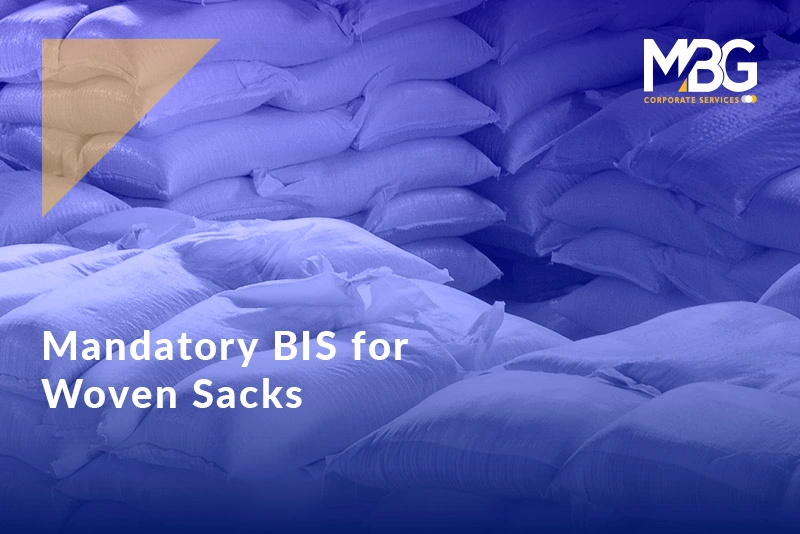Understanding BIS Certification: Process, Schemes, and Requirements for manufacturer or importer
July 21, 2025

The Bureau of Indian Standards (BIS) is the national standards body of India responsible for ensuring quality, safety, and reliability of products in the Indian market. BIS Certification is a mark of trust and compliance, assuring consumers and regulators that a product meets specified Indian standards set by responsible ministries (IS). BIS certification is mandatory for some products and voluntary for some. depending on the Quality control orders associated risk to health, safety, and the environment.
BIS Certification Schemes
BIS offers different schemes depending on the type of product category, manufacturing process, and location (domestic or foreign):
Scheme I: ISI Mark Scheme (Product Certification for Domestic)
- Indian manufacturers and foreign manufacturers are eligible to apply for the ISI scheme only for the product which is been mandatory set by the responsible ministries.
Process of getting the scheme:
-
- Identify the Indian standard under the Scheme
- Apply for portal creation,
- Generate TRL
- Get the product testing as per standard by BIS-recognized labs.
- Submit application with all the major technical documents/
- BIS conducts factory audits of production and quality systems.
- Upon compliance, BIS issues license for ISI Standard Mark with licence number.
- Conduct surveillance via market sampling and factory inspections
Ministries Involved in ISI Certification Process (via QCOs)
- Ministry of Consumer Affairs, Food and Public Distribution
- Nodal ministry for the Bureau of Indian Standards (BIS).
- Oversees the overall implementation of BIS certification policies.
- Ministry of Steel
- Involves in Issuing QCOs for steel and steel-related products
- Ministry of Heavy Industries.
- Covers components related to automotive parts, industrial machinery, transformers, etc.
- Primarily responsible for heavy machines used for industrial but also issues QCOs for electronics requiring ISI certification.
- Ministry of Chemicals and Fertilizers
- Issues QCOs for chemical products (e.g., fertilizers, acids, resins, solvents).
- Ministry of Environment, Forest and Climate Change
- Responsible for eco-labeled products and environmental safety-related materials.
- Ministry of New and Renewable Energy (MNRE)
- Issues QCOs for solar PV modules, inverters, and other renewable energy equipment.
- Ministry of Power
- Covers electrical items like cables, energy meters, and insulating materials under QCOs.
- Ministry of Petroleum and Natural Gas
- Issues QCOs for LPG cylinders, valves, regulators, and other petroleum-based components.
- Ministry of Textiles
- Introduced QCOs for cotton bales, and is expected to expand to more textile products.
- Ministry of Health and Family Welfare
- Oversees medical devices and healthcare-related products which may come under mandatory BIS certification.
- Ministry of Commerce and Industry
- Through DPIIT (Department for Promotion of Industry and Internal Trade), supports QCOs for industrial goods, safety equipment, and certain packaging products.
- Ministry of Housing and Urban Affairs
- For building and construction materials such as cement, pipes, sanitary fittings.
- Ministry of Railways
- Issues technical requirements for railway components and often refers BIS standards for conformity.
Scheme II: Compulsory Registration Scheme (CRS)
The Ministry of Electronics & Information Technology (MeitY) introduced the Electronics and IT Goods (Requirement for Compulsory Registration) Order, 2012, mandating registration of certain electronic products with BIS:
- Initial Notification (03 Oct 2012): 15 product categories.
- Additions by MeitY:
- 15 more categories (07 Nov 2014)
- 13 more categories (17 Aug 2017)
- 12 more categories (01 Apr 2020)
- 7 more categories (01 Oct 2020)
- Standard for Indian Language Support in Mobile Phones (24 Oct 2016)
- Standard for Digital TV Receivers (Satellite) (26 Apr 2023)
Other ministries have also notified products under compulsory registration:
- Ministry of New and Renewable Energy (MNRE): 5 solar products (30 Aug 2017)
- Ministry of Chemicals and Fertilizers:
- Ortho Phosphoric Acid (15 June 2021)
- Polyphosphoric Acid (24 Dec 2021)
- Trimethyl Phosphite (05 Apr 2022)
- Ministry of Textiles: Cotton Bales (28 Feb 2023)
- Process:
- Identify the Indian standard under the Scheme
- Apply for portal creation,
- Generate TRF
- Get the product testing as per standard by BIS-recognized labs.
- Submit application with all the major technical documents
- Reply to any query received from BIS
- Upon compliance, BIS issues license for CRS with (R) number.
Renew certificate periodically; subject to surveillance
- Applicable on Both domestic and foreign manufacturers of electronics/IT goods listed under MeitY notification
Scheme X: Certification Scheme (Special Electrical Equipment)
- Who it’s for: Manufacturers of low-voltage switchgear/controlgear up to 630 A/440 V under the Electrical Equipment QCO
- Process: Similar to Scheme I—product testing, factory audit, issuance of licence for Standard Mark, with specialized high-safety standards and surveillance.
- Responsible - Ministry of Heavy Industries
- Covers components related to automotive parts, industrial machinery, transformers, etc.
FMCS: Foreign Manufacturers Certification Scheme
- Applicable on Foreign manufacturers exporting product to India under mandatory & Voluntary QCO both.
- Process:
- Identify the Indian standard under the Scheme
- Nominate an Authorized Indian Representative (AIR).
- Submit all the required technical documents in offline mode.
- Submit product samples to recognized labs if required
- BIS will conducts factory audits at overseas sites.
- Licence granted to use ISI Standard Mark on exports product to india.
- Ongoing compliance and renewal checks
Compulsory Registration Scheme (CRS)
- Who it’s for: Both domestic and foreign manufacturers of electronics/IT goods listed under MeitY notification
The Ministry of Electronics & Information Technology (MeitY) introduced the Electronics and IT Goods (Requirement for Compulsory Registration) Order, 2012, mandating registration of certain electronic products with BIS:
- Initial Notification (03 Oct 2012): 15 product categories.
- Additions by MeitY:
- 15 more categories (07 Nov 2014)
- 13 more categories (17 Aug 2017)
- 12 more categories (01 Apr 2020)
- 7 more categories (01 Oct 2020)
- Standard for Indian Language Support in Mobile Phones (24 Oct 2016)
- Standard for Digital TV Receivers (Satellite) (26 Apr 2023)
Other ministries have also notified products under compulsory registration:
- Ministry of New and Renewable Energy (MNRE): 5 solar products (30 Aug 2017)
- Ministry of Chemicals and Fertilizers:
- Ortho Phosphoric Acid (15 June 2021)
- Polyphosphoric Acid (24 Dec 2021)
- Trimethyl Phosphite (05 Apr 2022)
- Ministry of Textiles: Cotton Bales (28 Feb 2023)
- Process:
- Test products at BIS-recognized labs.
- Self-declare conformity and upload lab reports.
- Receive CRS Standard Mark (R-Number).
Renew certificate periodically; subject to surveillance
- Both domestic and foreign manufacturers of electronics/IT goods listed under MeitY notification
Hallmarking Scheme
- Compulsory to sale: Jewellers and gold/silver as per the Hallmarking Regulation
- Process:
- Jeweller registers with BIS.
- Samples sent to Assaying & Hallmarking Centres (AHCs).
- After testing, hallmark includes BIS logo, purity code (e.g., 22K916), HUID, jeweller ID
- Subject to periodic audits and mandatory in many districts via QCO Order
- Purpose: Guarantees precious-metal purity for consumer protection.
BIS Certification Process
While the process can vary slightly by scheme, the general steps include:
Step 1: Application Preparation
- Choose the appropriate scheme (ISI, FMCS, CRS, or Hallmarking).
- Collect and prepare required documents like business license, test reports, factory layout, quality control procedures, etc.
Step 2: Product Testing
- Samples are submitted to a BIS-recognized lab.
- Products are tested against the relevant Indian Standards.
Step 3: Inspection (if applicable)
- For ISI and FMCS, BIS officials conduct a factory audit to assess production capacity and quality control.
Step 4: Certification Decision
- If both audit and test results meet the standard, BIS grants the license or registration.
- Applicant is allowed to use the appropriate BIS Mark.
Step 5: Post-Certification Surveillance
- Regular inspections, sample testing, and audits are conducted to ensure continued compliance.
Documentation & Requirements
- Valid Business License
- Physical Manufacturing Unit
- Indian standard product Manual
- Product Technical Specification
- Lab Test Reports (from BIS-recognized lab)
- Factory Layout Diagram
- Authorized Indian Representative (for foreign applicants)
- Undertaking & Affidavits (as per BIS guidelines)
| Scheme | Target Products | Process Features | Key Mark / Output |
| Scheme I | Domestic use -via QCO | Testing + audit, ongoing surveillance | ISI Standard Mark |
| Scheme II | Electronics/IT products | Testing + self-declaration, no audit | CRS Standard Mark |
| Scheme IV | Niche/batch-controlled QCO items | Batch testing → CoC issues | CoC + Standard Mark |
| Scheme X | Electrical switchgear/controlgear | Testing + audit with high-safety tests | Standard Mark |
| FMCS | Foreign manufacturers (non-CRS) | AIR + overseas audit + export licence | ISI Mark for exports |
| CRS | Electronics/IT products | Testing + self-declaration (R-Number) | CRS Standard Mark |
| Hallmarking | Gold/Silver jewellery/refineries | Registration + assaying + hallmarking + audit | BIS Hallmark + HUID |
Approach for BIS Certification
Here’s a practical approach for manufacturers or importers:
- Identify Applicable Standards: Determine if your product falls under mandatory BIS certification and the relevant Indian Standard (IS).
- Select the Scheme: Based on your location and product type, choose ISI, FMCS, CRS, or Hallmarking.
- Engage a Consultant: BIS Certification consultants can assist with documentation, testing, and liaison with BIS.
- Prepare Factory & Product: Ensure your manufacturing processes meet BIS standards and your product is production-ready.
- Apply & Comply: Submit application, facilitate audits and testing, and await BIS approval.
Conclusion
BIS Certification is not just a regulatory requirement it is a powerful trust-building tool for businesses entering or operating in the Indian market. By complying with BIS norms, manufacturers demonstrate their commitment to quality, safety, and consumer satisfaction. Whether you are a domestic producer or an international exporter, understanding the BIS certification schemes and processes is crucial for market access and long-term growth in India









